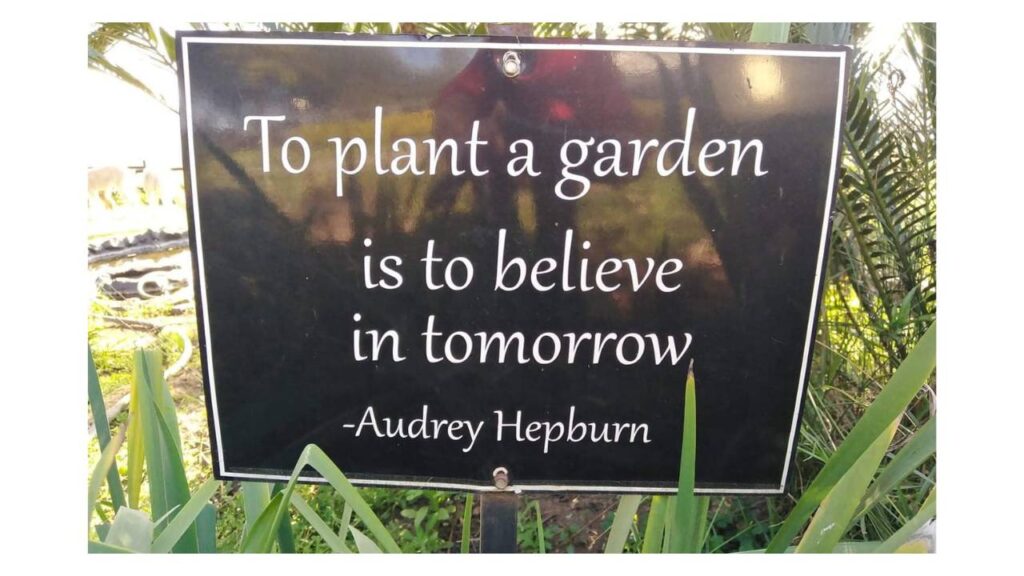Best Eco-Friendly Gardening Practices & Guide.
A Guide to Sustainable Gardening
In this hustle and bustle of modern life, where concrete jungles seem to dominate, there is a growing movement to bring nature back into our daily existence. One way to reconnect with the Earth is through eco-friendly gardening, A practice that not only nurtures plants but also fosters a sustainable relationship with our environment. In this guide, we’ll explore the principles of eco-friendly gardening, share inspiring examples, present relevant statistics, and discuss the challenges and emotional rewards of embracing this harmonious lifestyle.

The Essence of Eco-Friendly Gardening :- Eco-friendly gardening, also known as sustainable or green gardening, is a holistic approach that considers the impact of gardening practices on the environment. It goes beyond simply growing plants and involves mindful choices to minimize the use of resources, reduce waste, and support biodiversity.
Table of Contents
Start Your Eco-Friendly Gardening Practices
1. Composting Magic
One cornerstone of eco-friendly gardening is composting. Instead of discarding kitchen scraps and yard waste, turn them into nutrient-rich compost. This not only reduces landfill waste but also provides a natural and organic fertilizer for your garden. If you’re looking for a detailed guide on how to start composting from kitchen waste, WeCareEarth website offers a comprehensive resource that can guide you through the process. You can find valuable insights and step-by-step instructions at WeCareEarth’s guide on composting from kitchen waste. Embracing composting as a practice not only transforms your waste into “black gold” but also contributes to a sustainable and thriving garden ecosystem.
2. Water Wisdom in Eco-Friendly Gardening
Water wisdom in eco-friendly gardening is the mindful and efficient use of water resources to nurture plants while minimizing waste. Embracing this practice involves strategies such as rainwater harvesting and drip irrigation systems. Rainwater harvesting allows gardeners to collect and reuse rainwater, reducing dependence on conventional water sources and contributing to water conservation efforts.

Drip irrigation systems, on the other hand, deliver water directly to the roots of plants, minimizing evaporation and ensuring that water is used where it is needed most. By incorporating water-wise practices, eco-friendly gardeners not only promote sustainability but also play a crucial role in addressing water scarcity concerns, making a positive impact on both the environment and their gardens.
3. Native Plant Love
Choosing native plants is a cornerstone of eco-friendly gardening, embodying a philosophy that aligns with the local environment. Native plants are naturally adapted to the climate, soil, and pests of a specific region, requiring minimal intervention. By embracing these plants, eco-friendly gardeners not only promote biodiversity but also reduce the need for water, pesticides, and fertilizers. Native plants contribute to the resilience of the ecosystem, supporting local wildlife and creating a garden that harmonizes effortlessly with its surroundings.
In cultivating native plant love, eco-friendly gardeners celebrate the beauty and functionality of flora that has evolved over time to thrive in their particular geographic area, fostering a sustainable and balanced garden ecosystem.
4. Say No to Harmful Chemicals
“Saying no to harmful chemicals is a fundamental principle in eco-friendly gardening, emphasizing the importance of nurturing a garden without relying on synthetic pesticides and fertilizers. Instead, eco-conscious gardeners opt for natural alternatives to maintain a balanced ecosystem. By rejecting chemical inputs, they contribute to the health of the soil, water, and surrounding environment, avoiding the negative impacts associated with chemical use. This approach aligns with the broader goal of sustainable and responsible gardening, promoting a harmonious coexistence with nature that benefits both plant life and the well-being of the entire ecosystem.”
Photos Of Eco Friendly Gardening

 It’s well-suited for indoor and outdoor gardening
It’s well-suited for indoor and outdoor gardening  Grow fresh, nutritious and eco-friendly vegetables, herbs, fruits and flowers without the hassle of soil.
Grow fresh, nutritious and eco-friendly vegetables, herbs, fruits and flowers without the hassle of soil. Natural alternatives to chemical pesticides
Biopesticides are natural or biological alternatives to chemical pesticides that are used in home gardening to manage pests, diseases, and other issues while minimizing the impact on the environment. Here are some commonly used types of biopesticides for home gardening.
1. Beneficial Insects:
Introduce predators like ladybugs, lacewings, and parasitic wasps to control pest populations naturally.
The most natural and Eco-friendly way to repel pests from your gardens is to plant these pest repelling plants :-

2. Companion Planting:
Planting certain crops together can repel pests or attract beneficial insects. For example, marigolds can deter nematodes.
3. Trichoderma:
This fungus can suppress soil-borne diseases and promote healthy plant growth.
4. Copper-based Fungicides:
Copper sprays are used to control fungal diseases like blight and mildew.
5. Sulfur:
Sulfur is effective against fungal diseases and can be used on a variety of crops.
6. Vinegar:
Diluted vinegar can act as an herbicide, targeting unwanted vegetation.
7. Chitinase-Producing Bacteria:
These bacteria break down chitin, a component of insect exoskeletons, and can be used as biopesticides.
8. Essential Oils:
Some essential oils like peppermint, rosemary, and thyme have insect-repelling properties.
When using biopesticides, it’s important to follow the manufacturer’s instructions and apply them appropriately to achieve the desired effect. Keep in mind that while biopesticides are generally safer for the environment and beneficial insects, they may still impact non-target organisms, so use them judiciously and as part of an integrated pest management strategy.
The Numbers Behind Eco-Friendly Gardening
– Water Conservation:
- According to the Environmental Protection Agency (EPA), a household’s outdoor water use can be as high as 70%, and adopting water-efficient practices in gardening can significantly contribute to conservation efforts.
– Pesticide Reduction:
- The World Health Organization (WHO) reports that the use of chemical pesticides can have detrimental effects on human health and the environment. Eco-friendly gardening practices aim to reduce reliance on these harmful substances.
Challenges in Embracing Eco-Friendly Gardening
1. Initial Effort and Patience
Transitioning to eco-friendly gardening may require some upfront effort. Establishing composting systems, installing rainwater harvesting, and researching native plants can be time-consuming, but the long-term benefits outweigh the initial challenges.
2. Dealing with Pests Naturally
Controlling pests without chemical pesticides can be a learning curve. However, the introduction of beneficial insects, like ladybugs and predatory beetles, and using natural repellents can effectively manage pest issues over time.
Emotional Rewards of Eco-Friendly Gardening
1. Connection with Nature
Witnessing the growth and vitality of your garden nurtures a deep sense of connection with nature. The mindful tending of plants becomes a meditative practice, promoting mental well-being.
2. Pride in Sustainability
Knowing that your gardening practices contribute to a healthier planet fosters a sense of pride. Each eco-friendly choice made in the garden is a small but impactful step towards a more sustainable future.
3. Community Building
Eco-friendly gardening often brings like-minded individuals together. Joining community gardens or participating in local environmental initiatives creates a sense of belonging and shared purpose.
Conclusion: Planting Seeds for a Sustainable Future
Explore insightful tips and inspiration for eco-friendly gardening practices at House Beautiful. In the realm of eco-friendly gardening, every small action holds the potential to make a significant impact. As we cultivate our gardens, we cultivate a more sustainable, harmonious relationship with the Earth. The challenges are stepping stones, and the emotional rewards are the blossoms that make the journey worthwhile. So, roll up your sleeves, embrace the soil under your nails, and join the growing community of eco-friendly gardeners because the future is rooted in our hands.
